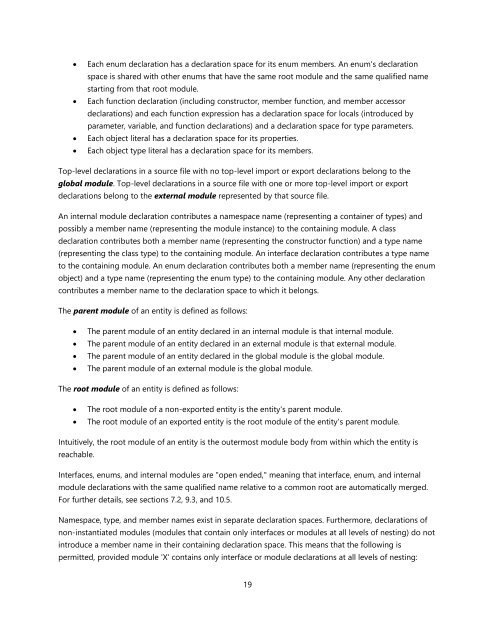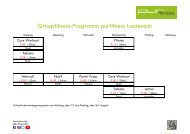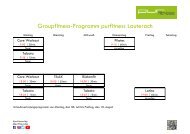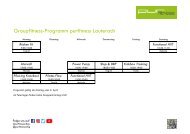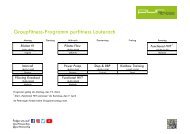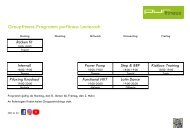TypeScript Language Specification v1.5
TypeScript Language Specification v1.5
TypeScript Language Specification v1.5
Create successful ePaper yourself
Turn your PDF publications into a flip-book with our unique Google optimized e-Paper software.
Each enum declaration has a declaration space for its enum members. An enum's declaration<br />
space is shared with other enums that have the same root module and the same qualified name<br />
starting from that root module.<br />
Each function declaration (including constructor, member function, and member accessor<br />
declarations) and each function expression has a declaration space for locals (introduced by<br />
parameter, variable, and function declarations) and a declaration space for type parameters.<br />
Each object literal has a declaration space for its properties.<br />
Each object type literal has a declaration space for its members.<br />
Top-level declarations in a source file with no top-level import or export declarations belong to the<br />
global module. Top-level declarations in a source file with one or more top-level import or export<br />
declarations belong to the external module represented by that source file.<br />
An internal module declaration contributes a namespace name (representing a container of types) and<br />
possibly a member name (representing the module instance) to the containing module. A class<br />
declaration contributes both a member name (representing the constructor function) and a type name<br />
(representing the class type) to the containing module. An interface declaration contributes a type name<br />
to the containing module. An enum declaration contributes both a member name (representing the enum<br />
object) and a type name (representing the enum type) to the containing module. Any other declaration<br />
contributes a member name to the declaration space to which it belongs.<br />
The parent module of an entity is defined as follows:<br />
<br />
<br />
<br />
<br />
The parent module of an entity declared in an internal module is that internal module.<br />
The parent module of an entity declared in an external module is that external module.<br />
The parent module of an entity declared in the global module is the global module.<br />
The parent module of an external module is the global module.<br />
The root module of an entity is defined as follows:<br />
<br />
<br />
The root module of a non-exported entity is the entity's parent module.<br />
The root module of an exported entity is the root module of the entity's parent module.<br />
Intuitively, the root module of an entity is the outermost module body from within which the entity is<br />
reachable.<br />
Interfaces, enums, and internal modules are "open ended," meaning that interface, enum, and internal<br />
module declarations with the same qualified name relative to a common root are automatically merged.<br />
For further details, see sections 7.2, 9.3, and 10.5.<br />
Namespace, type, and member names exist in separate declaration spaces. Furthermore, declarations of<br />
non-instantiated modules (modules that contain only interfaces or modules at all levels of nesting) do not<br />
introduce a member name in their containing declaration space. This means that the following is<br />
permitted, provided module 'X' contains only interface or module declarations at all levels of nesting:<br />
19


